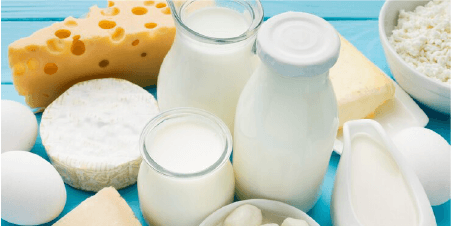
Milk value addition refers to the process of enhancing the value of milk or milk products by transforming raw milk or basic dairy
products into higher-value products that offer added benefits, convenience, or appeal to consumers. Farmers can benefit from milk by adding value hence increasing their net income. In addition to improving the scale of the economy in the dairy industry, milk value-addition products provide health benefits to consumers.
Prior to the advancement in dairy technology, farmers used to keep a dairy cow only for milk production, but with the introduction of new processing equipment, farmers can now add value to the milk. Selling raw milk alone might be difficult due to milk price fluctuations harming a farmer’s income. Milk can be used to give value to a variety of goods, including yogurt, cheese, ghee, and butter.
Milk value addition can be done by an individual farmer or farmers in a cooperative with a bigger, often more stable, milk supply.
Developing such cottage industries requires a number of factors. These include
• A consistent supply of high-quality milk that can be economically processed;
• Infrastructure to support processing at the farmer, village, and regional levels;
• Organisational support for farmers and farming communities in developing processing skills. Raising awareness on milk value addition.
• Infrastructure for marketing the finished products.Milk value addition can be done by manufacturing a wide range of processed products. These include:
• Heat-treated drinking milk, through pasteurisation, followed by flavouring or incorporation into other beverages.
• Separating milk fat from other milk solids to make butter, ghee, and skim milk.
• Fermenting milk to make yogurt.
• Fermenting milk to make cheese.
• Using byproducts like skim milk and whey to make ice cream and cheese.
• Adding additives to heated milk to make a range of sweets such as caramel.
• Using cheese in the kitchen to make high-value items like cheesecakes.
Equipment Acquisition.
Once a farmer has settled on the value-added product to manufacture and supply, the next step is to get a trusted value addition equipment supplier. East Africa, specifically Kenya, has different suppliers for such equipment but it is important to consider the material used (Kenya Dairy Board recommends food-grade stainless steel) , the workmanship, the warranty period, and after-sale services provided (e.g. commissioning and training).
An example of a supplier that ticks the boxes is Techwin Limited. Located in the Industrial area of Nairobi, the company manufactures and supplies dairy equipment enhanced with the most recent technological improvements for milk value addition. They can be reached on +254 743 793 878
